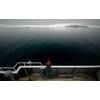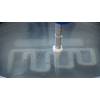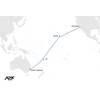Red Sea Cable Cuts Emphasize Infrastructure Resilience
According to AP News, multiple undersea cable cuts in the Red Sea have disrupted internet access across Yemen, the Gulf, and as far as India and Pakistan. Microsoft confirmed connectivity degradation, while NetBlocks and national operators in Kuwait and Pakistan reported outages affecting major international cable systems.
The cause of the incident remains unclear. Experts note that ship anchors, natural hazards, or deliberate attacks can sever subsea cables. The Red Sea disruption comes amid heightened regional tensions and follows warnings from governments that subsea infrastructure could be targeted.
“The Red Sea cable cuts show that subsea infrastructure is no longer a background issue, it is frontline critical," said Iain Grainger, Chief Executive of the International Marine Contractors Association (IMCA). "When cables fail, nations lose connectivity, financial flows are interrupted, and economies feel the shock immediately. This sector is now more critical than ever to global security and stability.”
Subsea cables carry 99 per cent of the world’s internet traffic and support $50 trillion in annual financial transactions. They also carry growing volumes of renewable electricity through offshore interconnectors. Disruption in one region quickly ripples through global systems, affecting communications, markets, and energy flows.
"The world depends on the marine contracting sector to repair these lifelines. But ensuring resilience is not automatic," added Grainger. "It requires sustained investment in vessels and equipment, fresh talent entering the workforce to complement today’s experienced specialists and regulatory frameworks that enable crews to respond without delay. Building this preparedness is a shared responsibility between governments, regulators, and industry.”
IMCA, in collaboration with the European Subsea Cables Association (ESCA), has urged governments and regulators to treat subsea resilience as a matter of national and international security.
The industry is calling for urgent reform of regulatory frameworks to enable faster repair mobilization; strategic investment in dedicated vessels and critical equipment; training and succession programs to bring through new generations of cable engineers and offshore crews; and improved cross-border cooperation, recognizing that outages rarely respect national boundaries.














 December 2025
December 2025



